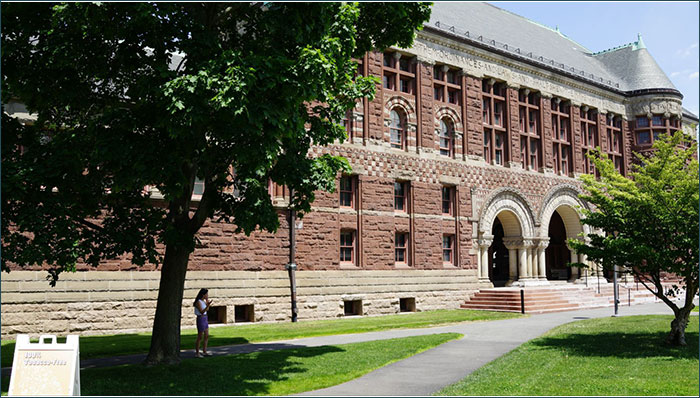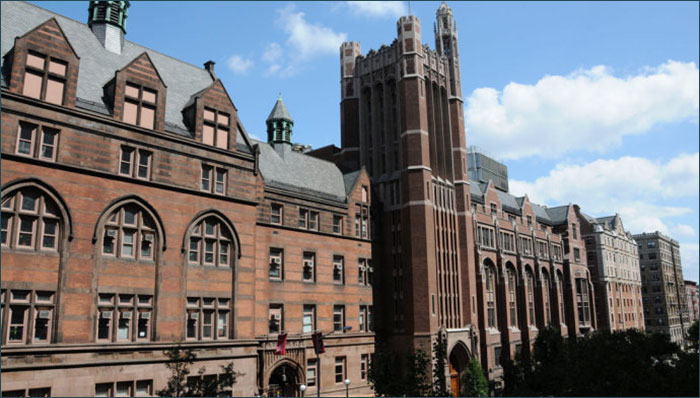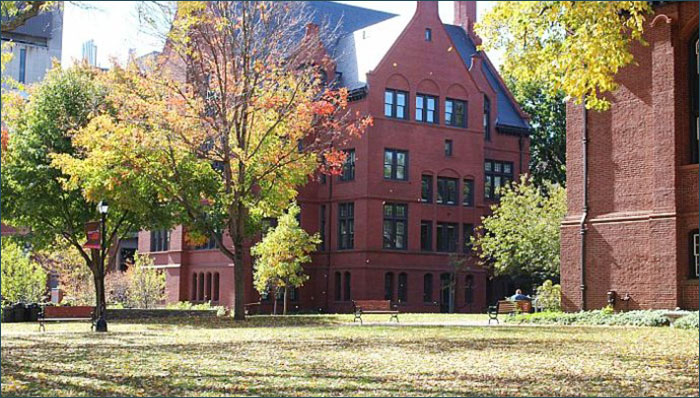留学生必看!雅思写作进阶:100个高级替换词(下篇)
嘿,大家好!欢迎回到我们的雅思写作进阶系列。上次我们聊了前50个高级替换词,不知道你们有没有好好复习呢?今天咱们继续来探讨剩下的50个词,帮助你在雅思写作中脱颖而出。如果你还没有看过上篇,赶紧去补补课吧!这次的内容同样干货满满,快来一起学习吧!
51. "Significant" - 重要的
“Significant”是一个非常有用的词,用来替代“important”。比如,你可以写:“The significant impact of technology on education cannot be ignored.” 这样听起来比直接说“important”更高级。
52. "Crucial" - 至关重要的
“Crucial”比“significant”还要强烈一些,表示某件事情极其重要。例如:“Access to clean water is crucial for the health and well-being of communities.” 这个词在讨论关键问题时特别有用。
53. "Essential" - 必不可少的
“Essential”意味着某样东西是必不可少的。比如:“Regular exercise is essential for maintaining good health.” 用这个词可以让你的句子更有说服力。
54. "Vital" - 生命攸关的
“Vital”强调的是生死攸关的重要性。例如:“Adequate sleep is vital for cognitive function and overall health.” 这个词适合用在强调极端重要性的情境中。
55. "Pivotal" - 枢纽性的
“Pivotal”指的是某个时刻或事件在某个过程中起到决定性的作用。比如:“The year 2000 was pivotal in the development of the internet.” 这个词可以让你的论述更加有力。
56. "Critical" - 批判性的
“Critical”除了表示重要之外,还可以指批判性的分析。例如:“It is critical to evaluate the sources of information before accepting them as true.” 这个词在学术写作中非常常见。
57. "Fundamental" - 基础的
“Fundamental”强调基础性和基本性。比如:“Language learning is fundamental to cultural understanding.” 这个词可以帮助你强调某个概念的基本重要性。
58. "Indispensable" - 不可或缺的
“Indispensable”表示某样东西是绝对不能缺少的。例如:“Teamwork is indispensable for the success of any project.” 这个词可以让你的论点更加坚定。
59. "Paramount" - 至高无上的
“Paramount”表示最高级别的重要性。比如:“The safety of children is paramount in any educational setting.” 这个词在强调最高优先级时非常有用。
60. "Invaluable" - 无价的
“Invaluable”表示某样东西的价值无法用金钱衡量。例如:“The support of friends and family is invaluable during difficult times.” 这个词可以让你的句子更加感性。
61. "Substantial" - 大量的
“Substantial”用来形容数量或程度很大。比如:“There has been a substantial increase in the number of international students in recent years.” 这个词可以让你的数据更加有说服力。
62. "Considerable" - 相当大的
“Considerable”也表示数量或程度较大。例如:“The environmental impact of plastic waste is considerable.” 这个词在描述显著变化时非常实用。
63. "Enormous" - 巨大的
“Enormous”强调规模或数量的巨大。比如:“The enormous potential of renewable energy sources is being explored by scientists worldwide.” 这个词可以让你的描述更加生动。
64. "Massive" - 庞大的
“Massive”和“enormous”类似,但语气更加强烈。例如:“The company faced massive financial losses due to the economic downturn.” 这个词在描述重大事件时非常有效。
65. "Huge" - 巨大的
“Huge”是一个比较常见的词,但仍然非常有用。比如:“The huge crowd at the concert was impressive.” 这个词在描述大规模现象时非常合适。
66. "Tremendous" - 巨大的
“Tremendous”强调规模或影响的巨大。例如:“The tremendous progress in medical research has saved countless lives.” 这个词可以让你的句子更加震撼。
67. "Colossal" - 巨大的
“Colossal”表示非常巨大,通常带有夸张的意味。比如:“The colossal statue of the ancient deity stands tall in the city center.” 这个词在描述宏伟景象时非常有用。
68. "Immense" - 巨大的
“Immense”强调规模或程度的巨大。例如:“The immense popularity of social media has changed the way we communicate.” 这个词可以让你的描述更加深刻。
69. "Vast" - 广阔的
“Vast”用来形容面积或范围广阔。比如:“The vast deserts of Africa are home to unique ecosystems.” 这个词在描述自然景观时非常合适。
70. "Extensive" - 广泛的
“Extensive”强调范围或程度广泛。例如:“The extensive network of public transportation makes it easy to travel around the city.” 这个词在描述系统或网络时非常有用。
71. "Profound" - 深刻的
“Profound”表示影响深远或意义深远。比如:“The book had a profound impact on my worldview.” 这个词可以让你的句子更加有深度。
72. "Deep" - 深度的
“Deep”可以用来形容情感或思想的深度。例如:“Her deep love for nature inspired her to become an environmental activist.” 这个词在描述情感时非常合适。
73. "Intense" - 强烈的
“Intense”强调情感或体验的强烈程度。比如:“The intense heat of the summer made it difficult to stay outdoors.” 这个词在描述极端情况时非常有效。
74. "Severe" - 严重的
“Severe”表示严重或严厉。例如:“The severe drought affected the entire region, causing widespread water shortages.” 这个词在描述负面事件时非常有用。
75. "Extreme" - 极端的
“Extreme”强调极端的程度。比如:“The extreme weather conditions made the rescue mission extremely challenging.” 这个词在描述极端情况时非常合适。
76. "Intensive" - 集中的
“Intensive”表示集中或密集。例如:“The intensive training program prepared the athletes for the upcoming competition.” 这个词在描述短期集中活动时非常有用。
77. "Fierce" - 猛烈的
“Fierce”强调激烈的程度。比如:“The fierce competition in the job market makes it difficult for new graduates to find employment.” 这个词在描述竞争时非常有效。
78. "Rigorous" - 严格的
“Rigorous”表示严格或严谨。例如:“The rigorous standards of the university ensure that only the best students are admitted.” 这个词在描述高标准时非常合适。
79. "Strict" - 严格的
“Strict”强调规则或标准的严格性。比如:“The strict dress code at the formal event required everyone to wear suits and ties.” 这个词在描述规定时非常有用。
80. "Stringent" - 严格的
“Stringent”表示非常严格或苛刻。例如:“The stringent regulations on pollution have led to significant improvements in air quality.” 这个词在描述严格规定时非常合适。
81. "Harsh" - 严酷的
“Harsh”强调条件或环境的严酷性。比如:“The harsh winter conditions made it difficult for the animals to survive.” 这个词在描述恶劣环境时非常有效。
82. "Stiff" - 严厉的
“Stiff”表示严厉或强硬。例如:“The stiff penalties for traffic violations serve as a strong deterrent.” 这个词在描述严厉措施时非常有用。
83. "Severe" - 严重的
“Severe”再次出现,因为它非常常用。比如:“The severe economic crisis led to widespread unemployment and poverty.” 这个词在描述严重后果时非常合适。
84. "Draconian" - 残酷的
“Draconian”表示极其严厉或残酷。例如:“The draconian measures taken by the government were widely criticized by human rights organizations.” 这个词在描述极端严厉措施时非常有用。
85. "Tough" - 艰难的
“Tough”表示困难或艰苦。比如:“The tough economic conditions forced many families to cut back on non-essential expenses.” 这个词在描述艰难情境时非常合适。
86. "Challenging" - 具有挑战性的
“Challenging”表示具有挑战性或难度。例如:“The challenging course material required students to study diligently.” 这个词在描述难度时非常有效。
87. "Demanding" - 要求高的
“Demanding”表示要求高或压力大。比如:“The demanding job responsibilities left little time for personal activities.” 这个词在描述高压工作时非常合适。
88. "Arduous" - 艰巨的
“Arduous”强调任务或工作的艰巨性。例如:“The arduous journey across the desert tested the limits of the explorers.” 这个词在描述艰难任务时非常有用。
89. "Laborious" - 辛勤的
“Laborious”表示需要大量努力或劳动的。比如:“The laborious process of building the pyramid took several decades to complete.” 这个词在描述繁重工作时非常合适。
90. "Strenuous" - 费力的
“Strenuous”强调任务或活动的费力程度。例如:“The strenuous workout left the athletes exhausted but satisfied.” 这个词在描述高强度活动时非常有效。
91. "Complex" - 复杂的
“Complex”表示复杂或难以理解。比如:“The complex legal system can be confusing for newcomers.” 这个词在描述复杂情况时非常有用。
92. "Complicated" - 复杂的
“Complicated”强调事情的复杂性。例如:“The complicated tax laws make it difficult for individuals to file their taxes correctly.” 这个词在描述复杂问题时非常合适。
93. "Intricate" - 精密的
“Intricate”表示精细或复杂的。比如:“The intricate design of the watch required skilled craftsmanship.” 这个词在描述精细工艺时非常有用。
94. "Elaborate" - 详尽的
“Elaborate”表示详细或精心设计的。例如:“The elaborate plan for the city’s expansion included multiple phases and detailed timelines.” 这个词在描述详细计划时非常合适。
95. "Sophisticated" - 高级的
“Sophisticated”表示高级或先进的。比如:“The sophisticated technology used in modern medicine has revolutionized healthcare.” 这个词在描述先进技术时非常有效。
96. "Advanced" - 高级的
“Advanced”表示高级或先进的。例如:“The advanced algorithms used in artificial intelligence are capable of solving complex problems.” 这个词在描述高级技术时非常合适。
97. "Refined" - 精致的
“Refined”表示精致或优雅的。比如:“The refined taste of the wine was appreciated by connoisseurs.” 这个词在描述高品质事物时非常有用。
98. "Polished" - 精美的
“Polished”表示精美或完美的。例如:“The polished performance of the orchestra received a standing ovation.” 这个词在描述完美表现时非常合适。
99. "Elegant" - 优雅的
“Elegant”表示优雅或美观的。比如:“The elegant design of the building won several architecture awards.” 这个词在描述美观设计时非常有效。
100. "Graceful" - 优美的
“Graceful”表示优美的或优雅的。例如:“The graceful movements of the dancer captivated the audience.” 这个词在描述优美动作时非常合适。
好了,今天的100个高级替换词就介绍到这里啦!希望这些词能帮助你在雅思写作中更加游刃有余。别忘了多加练习,把这些词融入到你的写作中去。如果你有任何疑问或者想分享自己的经验,欢迎在评论区留言哦!祝大家写作顺利,雅思高分!





